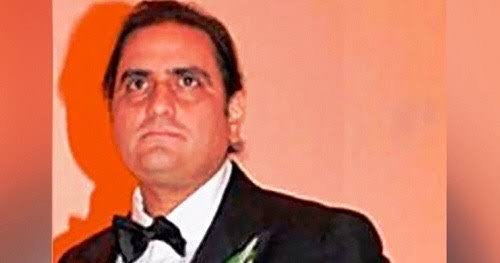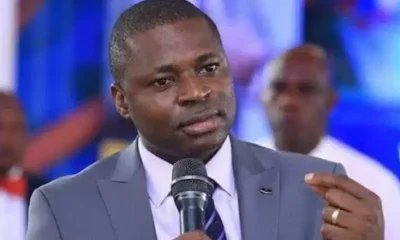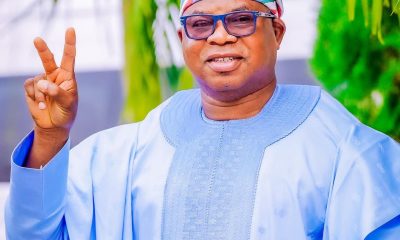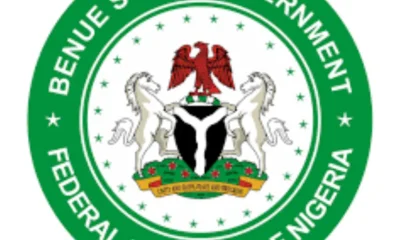News
Alex Saab’s Defence Team Fires Back At Cape Verde’s President, Asks Him To Show Courage

The defence team of embattled Venezuelan diplomat, Alex Saab, has reacted to claims made by Cape Verdean President, Jorge Carlos Fonseca, urging him to show courage.
Fonsesca had in a recent interview claimed that the only organization in Cape Verde capable of enforcing, or not, the recommendations of the UN Human Rights Committee on the Alex Saab case, is the Judiciary.
Speaking with journalists in Praia, Fonseca dismissed any responsibility and legitimacy of the Head of State, the Prime Minister or the Minister of Justice to take such a decision.
While noting that if he has an opinion on this matter, it is worth absolutely nothing before the jurisdiction of the court, he argued that only the judge has jurisdictional powers to order the arrest or release of anyone.
However, in a reaction to the claims made by the President, Saab’s defence team, in an open letter on June 14, noted that while it reassuring to read that he is not formally opposed to respecting the binding decision of the United Nations Human Rights Committee in the case of the arbitrary detention of Alex Saab, it is more worrying that he is relying on the judicial branch to decide on this issue.
The team noted that the United Nations in its decision of 8 June 2021, addresses him, the judges of Cabo Verde, and all branches of the government and as such, “the respect of human rights is not the monopoly of anyone, it is everyone’s business and it requires courage.”
The team noted that the President’s position, is alarming for at least two major reasons.
“First, the decision of the Human Rights Committee is intended to ensure that Cabo Verde respects very basic principles of humanity and dignity. In particular, it demands that Ambassador Saab be given access to adequate medical care, to independent doctors of his own choosing, and that the extradition process that puts him at certain risk of torture and ill-treatment be suspended. It is surprising, to say the least, that the Head of a sovereign state cannot guarantee that these elementary principles of humanity will be respected on its territory. It is even more worrying that a Head of state clearly does not have sufficient institutional authority to ensure that basic principles of dignity are respected. In both cases it is disquieting: either the head of state cannot enforce elementary requirements of human dignity to one of his prisoners, and his power is very limited; or he does not want to, and shows himself as someone unappreciative of the need to respect basic human rights.”
“Second, the Committee’s decision and the human rights obligations are binding “on every State Party as a whole. All branches of government (executive, legislative and judicial), and other public or governmental authorities, at whatever level – national, regional or local – are in a position to engage the responsibility of the State Party”, to quote the Human Rights Committee (General Comment 31, para. 4). This type of response, which consists of a head of state or a minister placing the blame for the violation on another branch of power, arguing that the separation of powers prevents him from enforcing human rights, or saying that it is not up to them to ensure humanity but up to the court for instance to decide, is a classic response of weak or authoritarian states. ”
The team added that during Fonseca’s visit to the International Criminal Court in December 2018, he said, “Cape Verde as a democracy and a state based on the rule of law is always with justice, respect of international law, democracy and liberties”.
Based on this, the team wrote that the world is watching and he must show courage, leadership and preserve the good name of the Republic of Cabo Verde
-

 News4 days ago
News4 days agoI’ll Rather Build Industries Than Build Mega Churches — Prophet Sam Ojo
-

 Entertainment3 days ago
Entertainment3 days agoNigerian Singer, Ifunanaya, Died After Snake Bite In Abuja
-

 Opinion4 days ago
Opinion4 days agoBola Oyebamiji: Beyond Skelewu Dancer: The Rising Technocrat Poised To Govern Osun State In 2026 By Wale Atoba
-

 Education5 days ago
Education5 days agoBenue Moves To End Illegal Exam Fees, Crush Miracle Centres


